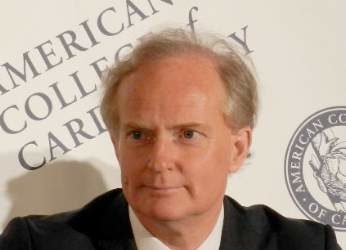FROM JAMA
At current prices, PCSK9 inhibitors are not cost-effective for patients with heterozygous familial hypercholesterolemia or atherosclerotic cardiovascular disease, according to an analysis published Aug. 16 in JAMA.
The costs of the cholesterol-lowering drugs would have to be reduced by at least two-thirds to reach cost-effectiveness, on the basis of data from the simulation model of atherosclerotic cardiovascular disease in the United States and the 2015 annual PCSK9 inhibitor costs of $14,350.
The high cost of PCSK9 (proprotein convertase subtilisin/kexin type 9) inhibition remains a challenge because it is meant for lifelong use, and “the potential increase in health care expenditures at current or even moderately discounted prices could be staggering,” wrote Kirsten Bibbins-Domingo, MD, PhD, of the University of California, San Francisco, and her colleagues ( JAMA 2016 Aug 16;316[7]:743-53 ).
The researchers used the Cardiovascular Disease Policy Model, which included adults aged 35-94 years and compared the cost-effectiveness of PCSK9 inhibitors and ezetimibe in treating two of the three indications for the drugs, heterozygous familial hypercholesterolemia (FH) or atherosclerotic cardiovascular disease (ASCVD). Homozygous FH was not included in the analysis.
The researchers assumed that statins, ezetimibe, and the two approved PCSK9 inhibitors (evolocumab and alirocumab) each would reduce the risk of cardiovascular events by an identical amount per mg/dL of LDL cholesterol reduction.
They found that, for PCSK9 inhibitors to be cost-effective at less than $100,000 per quality-adjusted life-year (QALY), the annual cost would need to drop from its current cost of roughly $14,000 per patient to $4,536 or less per patient, the researchers said.
Overall, the model showed that adding PCSK9 to statins for patients with heterozygous FH or ASCVD prevented 316,300 major adverse cardiovascular events (defined as cardiovascular death, nonfatal MI, or stroke), compared with adding ezetimibe; the cost was $503,000 per QALY. Adding PCSK9 inhibitors to statins for patients with ASCVD prevented about 4.3 million major cardiac adverse events, compared with adding ezetimibe; the cost was $414,000 per QALY.
In addition, the researchers found that PCSK9 inhibitor use would cut cardiovascular care costs by $29 billion over 5 years. However, the model projected an increase of about $592 in annual drug costs from 2015, as well as a 4% annual increase in U.S. health care costs overall.
The results were limited by several factors including the lack of long-term data on outcomes in patients taking PCSK9 inhibitors, the researchers noted. However, the findings suggest that the best way to improve the value of PCSK9 is to cut the price, they added.
In the meantime, “payers must consider the potential trade-off between paying for new drug treatments like PCSK9 inhibitors and investing in interventions known to improve access, physician prescription rates, and patient adherence to statin therapy among those at high ASCVD risk,” they said.
Dr. Bibbins-Domingo is the chair of the U.S. Preventive Services Task Force, but the study does not represent a recommendation from the USPSTF. She had no personal financial conflicts to disclose. The study was funded in part by the New England Comparative Effectiveness Public Advisory Council, which receives grants from several nonprofit organizations.





